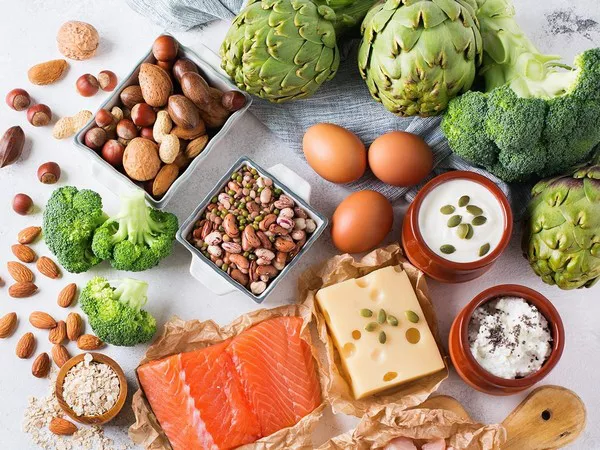Protein is an essential nutrient for the human body, playing a crucial role in various physiological processes. It’s particularly important for females as they have unique dietary requirements based on age, activity level, and overall health. In this comprehensive guide, we’ll explore the daily protein needs for females, understanding why protein is vital, and how to meet these requirements for optimal health.
1. The Importance of Protein for Females
Muscle Health
Protein is the building block of muscles. For females, maintaining muscle health is not only essential for physical strength but also for metabolism and overall well-being. Adequate protein intake supports muscle growth, repair, and maintenance.
Hormone Production
Proteins are involved in the production of hormones. Hormones play a significant role in regulating various functions in the female body, including the menstrual cycle and reproductive health. Ensuring proper protein intake can help maintain hormonal balance.
Hair, Skin, and Nails
Protein is essential for the health of hair, skin, and nails. Many beauty products even contain protein to enhance these aspects of appearance. Females can benefit from adequate protein intake for maintaining healthy and vibrant hair, skin, and nails.
2. Daily Protein Requirements for Females
General Guidelines
The recommended daily protein intake for females can vary based on several factors, including age, activity level, and overall health. As a general guideline, the Dietary Reference Intake (DRI) suggests that adult females should aim for about 46 grams of protein per day. However, individual needs may differ significantly.
Age-Related Differences
Protein requirements can change with age. For example, teenage girls who are still growing may need more protein, often between 46 and 52 grams per day. Pregnant and breastfeeding women also require additional protein to support the growth and development of the fetus or infant.
3. Factors Influencing Protein Needs
Activity Level
Active females, such as athletes or those with physically demanding jobs, often require more protein to support muscle repair and energy needs. Protein intake should align with activity level to ensure optimal performance and recovery.
Body Weight and Composition
Protein needs are often calculated based on body weight. Individuals with higher lean body mass may require more protein than those with lower muscle mass. Factors like weight loss goals and fitness objectives can influence protein requirements.
Certain health conditions, such as diabetes or kidney disease, may necessitate adjustments to protein intake. Consulting with a healthcare professional or registered dietitian can help determine the appropriate protein levels for specific health needs.
4. Meeting Protein Needs through Diet
Dietary Sources of Protein
Protein can be obtained from a variety of dietary sources, including lean meats, poultry, fish, dairy products, legumes, and plant-based options like tofu and tempeh. A well-balanced diet that incorporates these sources can help females meet their protein requirements.
Protein Timing
Distributing protein intake evenly throughout the day can be beneficial. Including protein-rich foods in breakfast, lunch, and dinner can optimize muscle protein synthesis and provide sustained energy.
Supplements
In some cases, females may consider protein supplements, such as protein shakes or bars, to meet their protein needs, especially if they have specific dietary restrictions. Consulting with a healthcare professional before adding supplements to the diet is advisable.
5. Potential Risks of Inadequate Protein Intake
Muscle Loss
Inadequate protein intake can lead to muscle loss, especially in females. This can result in reduced strength and may negatively impact metabolism.
Weakened Immune Function
Proteins are vital for immune function. A lack of protein can compromise the immune system, making females more susceptible to infections and illnesses.
6. Conclusion
In conclusion, protein is an essential nutrient for females, supporting muscle health, hormonal balance, and overall well-being. While general guidelines exist, individual protein requirements can vary significantly based on age, activity level, and health status. Understanding these factors and meeting protein needs through a balanced diet is crucial for maintaining optimal health. Consulting with a registered dietitian or healthcare professional can provide personalized guidance to ensure that females receive the right amount of protein to support their unique needs. Prioritizing protein intake can lead to improved muscle strength, hormonal balance, and overall vitality for females of all ages.


